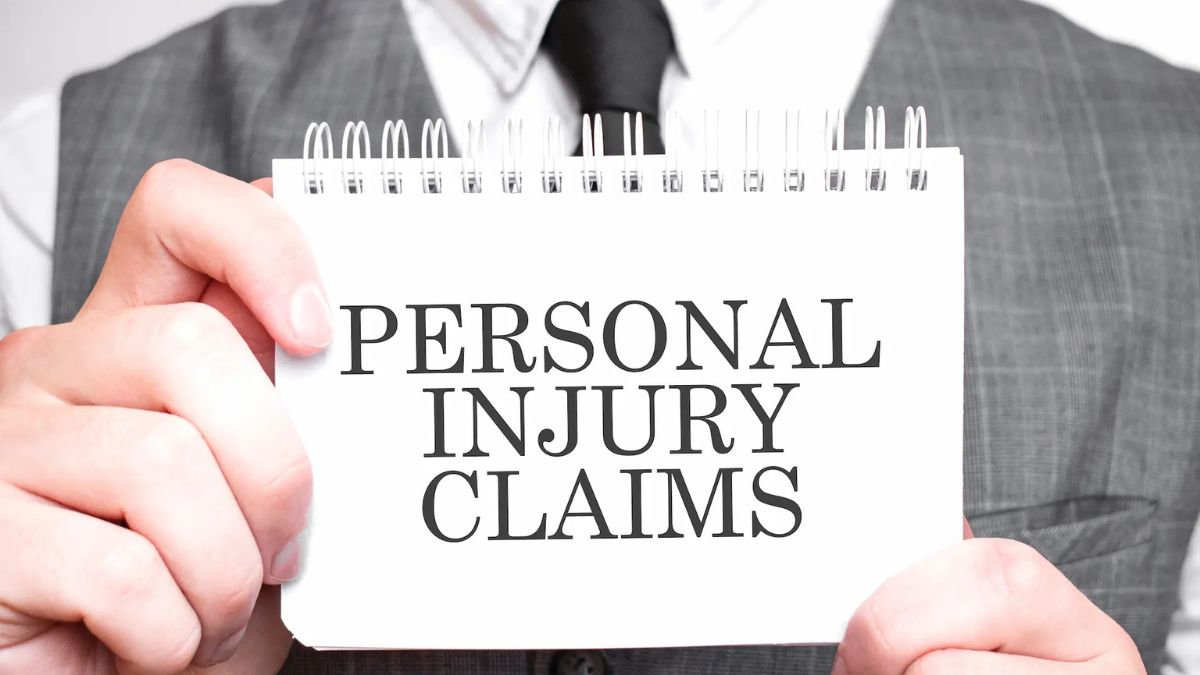LAW
Tips for Navigating Legal Challenges in Everyday Situations

Dealing with Real Estate Disputes
Real estate is a significant investment that often involves high stakes. Disputes can arise unexpectedly, from boundary disagreements with neighbors to complex landlord-tenant issues. Early identification and resolution of these conflicts can prevent them from escalating into costly legal battles. Engaging with a reputable law firm can be crucial in managing these challenges. They clarify your legal standing and offer pathways to amicable solutions, such as mediation or settlement. Legal experts are equipped to analyze the intricacies of property law, safeguarding your interests. Delve deeper into strategies by visiting resources like real estate dispute resolution tips, emphasizing the importance of maintaining open communication and thorough documentation.
Handling Workplace Legal Issues
The workplace presents an intricate web of rights and responsibilities; legal complications can sometimes arise from unexpected corners. Whether dealing with wrongful termination, alleged workplace harassment, or discrimination claims, understanding your legal rights is fundamental. Start by keeping a detailed log of incidents, which will be critical if a legal claim becomes necessary. Become familiar with the employment laws applicable in your area; for instance, the Equal Employment Opportunity Commission offers extensive information regarding employee rights. Consulting with a legal professional can provide clarity and support, illuminating your options and guiding you toward a resolution that aligns with your circumstances while prioritizing your rights.
Understanding Contractual Obligations
Contracts form the backbone of many personal and professional transactions, from service agreements to business deals. Every clause in a contract is vital, and misunderstanding these terms can lead to severe implications, including financial loss or legal liability. It is crucial to thoroughly review all aspects of any contract before signing. If any part of the contract is unclear, seeking legal advice can dispel ambiguity and ensure you are fully aware of your commitments. Remember, while less formal, verbal agreements can also hold legal weight, so treat these with equal caution. Comprehending these elements minimizes potential legal issues and bolsters your position in exchanges and agreements.
Coping with Personal Injury Cases
In the unfortunate event of a personal injury, the aftermath can be daunting and emotionally taxing. Navigating the legal processes requires a clear strategy to secure fair compensation and support recovery. Begin by documenting every detail about the incident and gathering evidence, such as photos or witness statements. Equally essential is understanding your insurance policy and ensuring you adhere to the required protocol for filing claims. Legal experts can offer insights on claiming compensation, negotiating settlements, and evaluating the merits of your case based on the evidence provided. In instances where negligence is involved, identifying responsible parties and proving liability is pivotal to achieving a satisfactory outcome.
The Importance of Estate Planning
Estate planning is often misconceived as necessary only for the affluent, yet it is crucial for everyone, regardless of asset size. It encompasses making wills, establishing trusts, and assigning powers of attorney—all vital for ensuring your wishes are respected upon passing. Proper estate planning prevents the potential turmoil that can stem from ambiguous intentions and provides clarity for your heirs. Legal advisors specializing in estate planning can tailor plans to fit your circumstances, protecting your assets and facilitating a smooth estate transition. Planning relieves your loved ones of additional stress during an already challenging time.
Navigating Family Law Matters
Family law is uniquely intertwined with emotional and personal aspects of life, covering issues from divorce proceedings to adoption and custody battles. Each situation calls for an understanding of your rights and available legal pathways. Juvenile law and marital property division are examples of the complexities involved in family law. Consulting an attorney with experience in family law can greatly benefit you, offering peace of mind and ensuring that your case is handled adeptly. This expertise is especially pertinent given the variable nature of family laws across different jurisdictions. You protect your interests and family by approaching these highly personal matters with informed legal counsel.
Accessing Legal Aid Resources
Access to legal resources should not be a privilege reserved solely for those who can afford it. Thankfully, various organizations provide valuable support to bridge this gap, offering free or low-cost legal services. Legal aid societies and nonprofit groups are pivotal in delivering guidance and representation to needy individuals. These services can encompass various legal areas, from housing and employment to domestic issues and immigration. Understanding where and how to access these resources can provide critical assistance for those unable to procure legal representation, leveling the legal playing field regardless of financial means.
LAW
Navigating Personal Injury Claims and Legal Considerations

Introduction
Experiencing a personal injury can be life-altering, leaving victims dealing with a myriad of physical, financial, and emotional challenges. Understanding the legal landscape surrounding personal injury claims is vital for ensuring that one’s rights are protected and fair compensation is pursued. This article delves into various aspects of personal injury claims, providing a clearer understanding of the steps involved. For those seeking professional assistance, resources like Harrisonburg personal injury lawyers from Correll Law Firm offer expert guidance and support, ensuring that victims can navigate these challenging waters with confidence.
What Constitutes a Personal Injury Case?
Personal injury cases occur when an accident or injury causes harm to a person and another person may be held legally liable for that harm. The core of these cases often revolves around negligence—where one party’s lack of reasonable care results in injury to another. Common scenarios include automobile accidents, slips and falls, and medical malpractice. Each case requires an understanding of the legal definitions of negligence and liability, which vary by jurisdiction but fundamentally seek to protect individuals from preventable harm caused by another’s actions or inactions.
Common Types of Personal Injuries
There are numerous scenarios where personal injuries can occur. Car accidents remain the leading cause of personal injury claims worldwide, with automotive collisions causing a significant amount of physical harm annually. Other prevalent forms include slip and fall accidents on commercial properties, workplace injuries ranging from minor accidents to severe occupational hazards, and cases of medical malpractice. Understanding these types is essential, as each has unique legal criteria and challenges. According to statistics from the U.S. Bureau of Labor Statistics, workplace injuries alone account for thousands of claims every year, emphasizing the widespread impact personal injuries have across various sectors. In Harrisonburg, these scenarios are all too familiar as well, with residents frequently encountering the complexities of personal injury claims due to its bustling community and active lifestyle. Navigating these cases requires a personalized approach, given the unique characteristics of the area and its local laws.
Steps to Take Immediately After an Injury
After an injury, taking prompt, right action can have a big impact on how any future legal action turns out. First, ensuring your safety and health should be a priority, which often involves seeking prompt medical attention to diagnose and treat even seemingly minor injuries. Not only does this ensure your well-being, but it also establishes an official record of your injuries. Next, it’s crucial to report the incident to the relevant authorities, such as filing a police report in case of a car accident or notifying an employer for workplace incidents, which can serve as vital evidence later. Collecting contact information from any witnesses can also be invaluable, helping add credibility to your account of the event.
Understanding Compensation Types
Economic losses and non-economic damages are the two forms of compensation that are awarded in personal injury lawsuits. Tangible losses such as medical bills, rehabilitation expenditures, and lost wages from being unable to work are examples of economic damages. These are relatively straightforward to calculate, provided adequate documentation is available. Conversely, less obvious effects like pain and suffering, loss of companionship, or a lower quality of life are covered by non-economic damages. Although more subjective, these damages are equally important, recognizing the broader impacts of injuries on an individual’s life.
Importance of Gathering Evidence
Any successful personal injury claim is built on evidence, which backs up your claims for damages and validates your statements. Essential pieces of evidence can include detailed photographs of the accident scene, medical records documenting your injuries and treatments, and written accounts of the event from witnesses. This evidence is crucial not only in establishing fault but also in communicating the extent of your injuries and the resulting impact on your life. It is essential to meticulously organize and preserve such evidence, as it significantly influences the outcome of legal proceedings.
Challenges Faced in Personal Injury Cases
Navigating personal injury cases can be fraught with challenges, from proving liability to confronting the tactics of insurance companies aiming to minimize payouts. Particularly for those recuperating from traumatic experiences, legal procedures can be scary and complicated. Staying informed and prepared is crucial, and online resources provide valuable insights into relevant laws and legal procedures. Claimants often face difficulties in gathering sufficient evidence, meeting procedural deadlines, and effectively challenging the counterarguments of opposing parties.
When to Seek Legal Help
While embarking on a personal injury claim process, individuals often question the right time to seek legal assistance. It’s advisable to consult with a lawyer early, particularly when injuries are severe or liability is contested. Experienced attorneys can play a pivotal role in navigating the complexities of legal documentation, procedural requirements, and negotiations with insurance companies or opposing legal teams. Employing legal expertise allows you to focus on your recovery while ensuring your rights are vigorously defended, and an optimal settlement is pursued.
Conclusion
Grasping the essential aspects of personal injury claims empowers individuals to approach their cases with confidence and understanding. Though the path might be fraught with obstacles, being well-informed and seeking expert guidance ensures that justice is not only sought but achieved. Victims are encouraged to reach out for professional legal support, which can make a significant difference in navigating the complexities of their journey toward rightful compensation. By prioritizing their recovery and leveraging available legal resources, individuals can aim to return to a state of normalcy with their rights fully protected.
LAW
Surprising Facts Everyone Should Know About DUI Laws

Introduction to DUI Laws
Driving under the influence (DUI) encompasses more than the immediate dangers of impaired driving. It extends into legal domains, societal responsibilities, and personal safety. In many regions, DUI laws are enforced strictly to curb the number of accidents and fatalities on highways. Recent statistics show that DUI-related accidents account for a significant percentage of road incidents annually. Engaging with the services of a DUI defense lawyer can be invaluable for those navigating these complex situations, offering expert advice tailored to the intricacies of local legal frameworks. However, the primary focus should always be on prevention through education and responsible decision-making.
DUI Laws Across Different States
The diversity in DUI laws across the United States can be attributed to state-specific approaches to enforcement and prevention. For example, states like Arizona have some of the toughest DUI laws, mandating imprisonment for first-time offenders and the installation of ignition interlock devices post-conviction. In contrast, states like South Dakota have more lenient measures, focusing more on rehabilitation and education. Understanding these variances helps comply with local laws and serves travelers who might not be aware of how state lines can impact their legal obligations. Exploring resources such as the National Highway Traffic Safety Administration can provide a comprehensive breakdown of these differences and assist in promoting informed decision-making among drivers.
The Science Behind BAC Limits
Blood Alcohol Concentration (BAC) serves as the standard measurement for gauging an individual’s level of intoxication. While a BAC of 0.08% is widely recognized as the legal limit for drivers over 21, achieving this level can vary based on numerous factors like body weight, gender, and alcohol tolerance. Studies suggest that even small quantities of alcohol can impair cognitive and motor functions, underscoring the importance of personal responsibility. Factors such as food intake, hydration levels, and individual metabolic rates can also have substantial effects on BAC. Thus, comprehensive awareness of these influences is crucial for every driver, potentially averting a DUI arrest and its associated penalties.
Technology and DUI Prevention
Leveraging technology in DUI prevention has opened new frontiers in both personal and public safety. Today, personal breathalyzer devices offer real-time data synced to smartphones, serving as convenient checks for individuals before they decide to drive. Smart vehicle systems are increasingly being developed to detect impairment and automatically prevent the engine from starting if the driver’s BAC exceeds legal limits. This wave of innovation, as highlighted by TechCrunch, promises to significantly bolster DUI prevention strategies. These advancements showcase the potential of technology to contribute positively to vehicular safety, minimizing human error and saving lives.
Real-Life Consequences of a DUI
The repercussions of a DUI conviction are far-reaching, impacting multiple facets of an individual’s life. Beyond the obvious legal penalties—which may include fines, probation, or incarceration—the effects spill into areas such as job prospects, personal relationships, and mental health. Professional licenses in certain fields like healthcare or law may be jeopardized by a DUI charge. Moreover, personal car insurance rates typically skyrocket post-conviction, posing financial strains for many. The psychological burden of a DUI conviction cannot be understated, often involving feelings of guilt and embarrassment that might require counseling or support groups. Understanding these real-life implications emphasizes the critical importance of making informed decisions about drinking and driving.
Legal Representation in DUI Cases
Securing legal representation in DUI cases often proves crucial for those facing charges. Specialist DUI defense lawyers provide indispensable insights, potentially altering the course of a case toward a more favorable outcome. Their expertise includes challenging the accuracy of breathalyzer tests or questioning the legality of the traffic stop that led to the DUI arrest. Legal representation can significantly influence sentencing, possibly reducing charges or negotiating alternatives such as community service or rehabilitation programs. Familiarity with the detailed nuances of DUI laws empowers these legal professionals to protect and advocate for their clients effectively, underscoring the necessity of professional advice in these scenarios.
Debunking Common DUI Myths
Misconceptions about DUI laws and their enforcement can lead to misguided decisions and unnecessary risks. A prevalent myth is that consuming multiple cups of coffee or taking a cold shower can swiftly counteract intoxication effects; reality proves otherwise as time remains the only reliable factor in lowering BAC levels. Another fallacy is the assumption that less conspicuous neighborhoods or backroads may be safer from police patrols, which can result in dangerous situations. Recognizing and debunking such myths is crucial not only for individual safety but also for fostering a culture of responsibility on the roads.
Tips for Avoiding a DUI
Proactive measures can substantially lower the risk of DUI incidents for drivers. One key strategy involves planning ahead by designating a sober driver or using ride-sharing apps to ensure safe travel. Awareness and moderation in alcohol consumption, coupled with waiting sufficient time post-drinking before driving, are fundamental habits to cultivate. Investing in personal breathalyzers provides an added layer of responsibility and assurance, empowering individuals to make informed travel decisions. By embracing these simple yet effective tips, individuals contribute to safer roads, enhancing community well-being and reducing the prevalence of DUI-related accidents.
BUSINESS
How Legal Insights Can Streamline Business Operations

Benefits of Legal Insights
In the competitive arena of modern commerce, understanding the law is not just about compliance—it’s a strategic advantage. Legal insights allow businesses to avoid obstacles and leverage opportunities, fostering an environment where innovation thrives. This proactive approach safeguards against potential legal pitfalls and ensures that operations are fluid and unobstructed by unforeseen legal challenges.
Quality legal counsel is akin to building a sturdy foundation for a skyscraper. It allows for expansion and growth without the fear of collapse. Businesses prioritizing legal guidance are often better equipped to handle market volatility, regulatory changes, and stakeholder expectations. There’s a delicate balance between taking calculated risks and preparing for unexpected legalities. For those keen to explore how legal frameworks can significantly enhance business strategies, the insights shared in this Forbes article delve deeper into the synergetic relationship between legal strategy and business operations.
Implementing Legal Strategies
When integrated thoughtfully into business operations, legal strategies provide a robust defense against risks. Engaging a Denver Business Attorney ensures that businesses receive expert guidance tailored to their contexts. This integration is most effective when legal advisors are involved in strategic planning, ensuring their insights are aligned with business goals. It’s about creating a seamless strategy where every legal move supports the company’s core objectives and vision.
For instance, in a manufacturing business, strategic legal advice may involve assessing environmental regulations to ensure production processes comply with the law while optimizing cost efficiency. Similarly, a tech startup’s legal strategy might focus on protecting intellectual property while advocating for fair use and licensing agreements. This fusion of legal acuity with business foresight streamlines operations and fortifies the company’s market positioning in a competitive landscape.
Avoiding Common Legal Pitfalls
Common legal pitfalls often stem from neglecting the proactive management of regulatory changes. Businesses can become entangled in costly litigation or experience operational disruptions if they fail to monitor and adapt to evolving legal landscapes. Building and maintaining a strong relationship with a legal advisor can be instrumental in circumventing such potential hazards.
Regular legal audits, participation in industry-specific legal forums, and ongoing education about regulatory changes are crucial to avoiding these pitfalls. By adopting a forward-looking approach, companies can safeguard their interests and gain competitive advantages by being one step ahead of more reactive competitors.
Contract Management Efficiency
Contracts are the backbone of any business transaction. Implementing efficient contract management enhances legality and boosts trust between parties. Given the complexity and importance of contracts, a structured approach to their management is vital for seamless business transactions.
This includes digitizing contract storage for easy retrieval, setting up automated alerts for renewals or terminations, and establishing clear communication channels for all involved parties. By doing so, businesses ensure that terms are adhered to and minimize conflicts, allowing them to focus energy on growth and innovation rather than legal disputes and renegotiations.
Legal Compliance and Best Practices
Ensuring compliance is a non-negotiable aspect of doing business, as non-compliance can lead to severe penalties and damage to reputation. Businesses can better manage their legal obligations by implementing best practices like regular compliance checks, transparency in operations, and comprehensive employee training programs.
Legal compliance also involves understanding global regulations, especially for companies with an international presence. This degree of vigilance supports the company’s credibility and operational perfection. Resources such as the Harvard Business Review offer more insights into maintaining compliance, highlighting the importance of maintaining compliance and business efficiency.
Protecting Your Business
To safeguard a company means preparing it for both expected and unforeseen challenges. This preparation involves creating detailed risk management plans that outline specific actions in emergencies such as data breaches, financial crises, or natural disasters. By planning for the worst, businesses can mitigate its effects and continue operations without significant interruption.
Furthermore, companies should regularly update these risk management plans and conduct simulations to test their effectiveness. This proactive stance protects the business from potential threats and assures clients, partners, and investors of the company’s stability and resilience.
Digital Transformation and Legal Considerations
As digital transformation becomes increasingly essential, businesses must navigate the complex legal territories of the online world. Ensuring that data protection protocols are in place to safeguard client information is just one aspect of this transformation. Cybersecurity frameworks must be robust and compliant with legal guidelines to protect company and client data.
Intellectual property in the digital space also requires vigilant protection. Ensuring that software, content, and digital assets are legally secured prevents misappropriation of valuable resources. This calls for a legal strategy encompassing traditional intellectual property rights and the nuances of digital ownership and copyright laws.
Future of Legal Advice in Business
The landscape of legal advice in business is evolving rapidly, influenced by technological advancements and changing market dynamics. Legal tech solutions are emerging, offering businesses streamlined processes for contract management, compliance monitoring, and risk assessment. These tools empower businesses to make informed decisions quickly and accurately, ensuring they remain agile and competitive.
As we move forward, integrating artificial intelligence and machine learning into legal processes will further revolutionize how businesses approach their legal obligations. By automating routine tasks, companies can focus on strategic decision-making and innovation, ultimately driving their success in an increasingly complex business environment.
-

 TOPIC3 months ago
TOPIC3 months agoExploring Fappelo: The Rise of a Unique Online Community
-

 TECHNOLOGY3 months ago
TECHNOLOGY3 months agoExploring the Impact of Shannon Swanick TPO on Modern Blogging
-

 CRYPTO4 months ago
CRYPTO4 months agoUnderstanding the Landscape of Crypto30x.com regulation: What You Need to Know
-

 CRYPTO4 months ago
CRYPTO4 months agoExploring the Benefits of Using Biitland.com Stablecoins
-

 TOPIC3 months ago
TOPIC3 months agoTop 5 Myths About Hypackel Debunked!
-

 BEAUTY4 months ago
BEAUTY4 months agoCeylan Eye Cream Reviews: Transforming Tired Eyes or Just Hype?
-

 HEALTH2 months ago
HEALTH2 months agoTop 5 Benefits of Using a Mansrufer for Your Daily Routine
-

 TOPIC2 months ago
TOPIC2 months agoThe Art of Expression: Analyzing Puppygirlxd Most Iconic Creations
